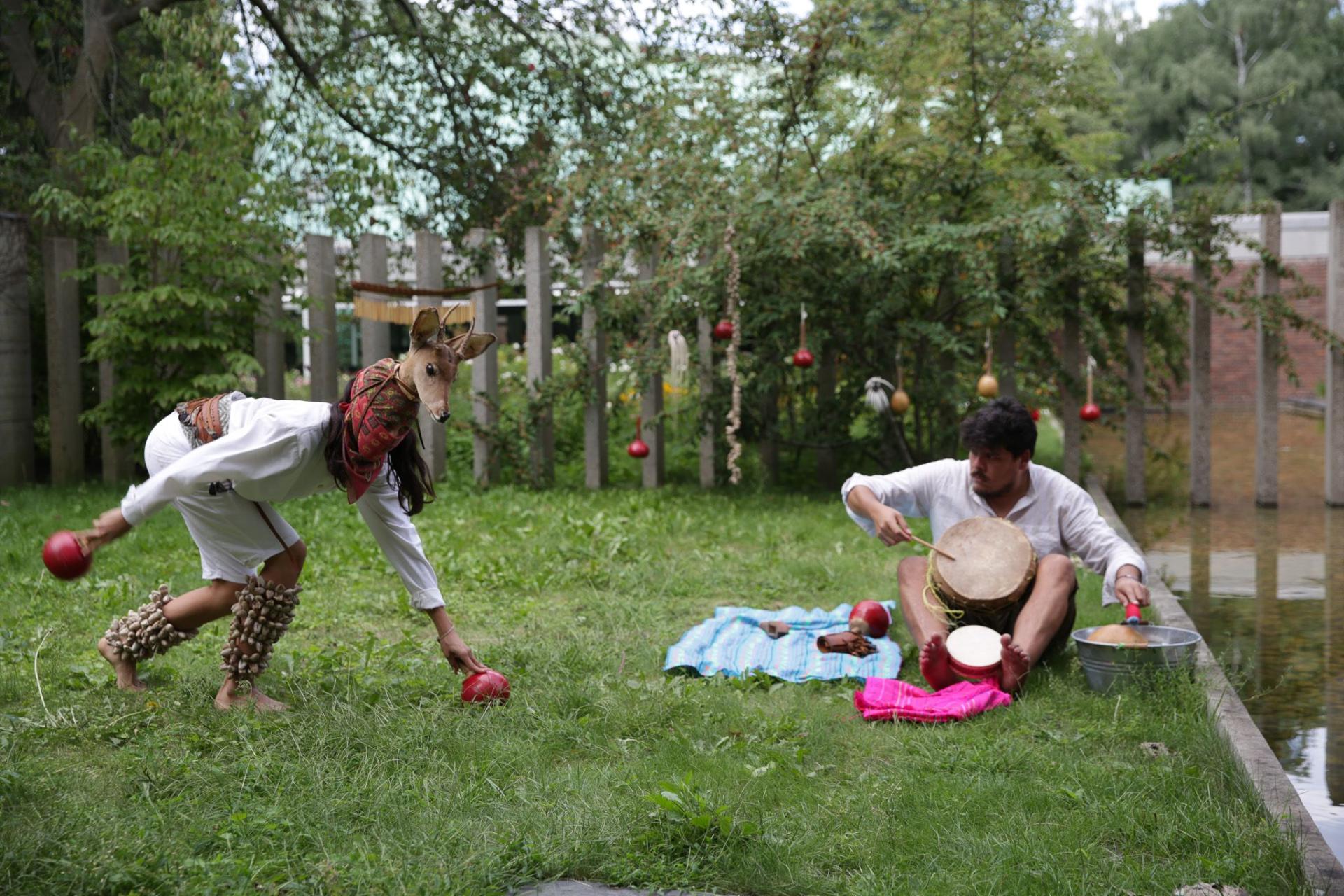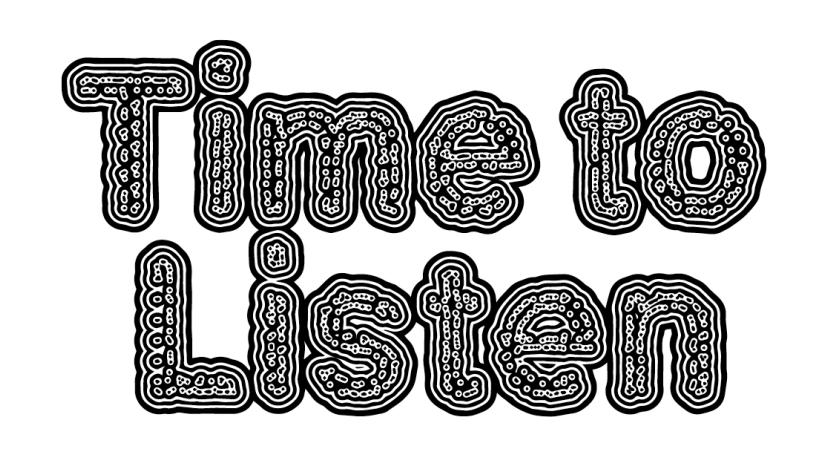DAY ONE: Tuesday, 1st October
9:30 Registration (Foyer)
10:00 Welcome by Manos Tsangaris (President of the AdK) and Listening Introduction by Peter Cusack: »Listening to Climate Change and Making Music Through the Window« (Studiofoyer)
10:30 Introduction and Collection of Topics for Open Sessions
by conference hosts Lisa Benjes (inm / field notes) and Julia Gerlach (AdK) (Studiofoyer)
11:00 Parallel Sessions
- Jorge Zurita: »Emerging Nodes (flows from hydro-activism)« participative workshop with video score (Studiofoyer)
- Futures of Listening: »Curating Water Knowledge« listening session and discussion (Clubraum)
- Danish Climate Network: »Guidelines for institutional and artistic addressing of climate challenges« participative workshop (Besprechungsraum)
12:00 Coffee Break (Sesselclub)
12:15 Open Sessions (Clubraum, Besprechungsraum, Sesselclub)
13:00 hany tea and Cavid Dhen: »rice as food as politics« performance (Studiofoyer)
13:30 Lunch (Studiofoyer)
14:30 Parallel Sessions
- Nico Daleman: »Cancelling Noise« listening session and discussion (Studiofoyer)
- Banu Çiçek Tülü: »Inundated: Speculations on Water as a Site and a Paradigm«, lecture performance with live electronics (Clubraum)
- Open Panel Discussion: »Best practice and pitfalls in collaborations between art, society and science and intercultural setting« with Beltràn Gonzalez (composer), Claudia von Hasselt and Nicolas Wiese (Frau von Da), Adnan Softić and Nina Softić (Klimaton) and Karen Power (composer), Suk Jun Kim (Sound Artists and Futures of Listening) (Besprechungsraum)
15:30 Parallel Sessions
- Karen Power »arctic Ice speaks through time« Presentation (Sesselclub)
- Alejandra Borea: »Sound recycling: (aesth)ethics of sampling« participatory talk and collective listening exercise (Clubraum)
- Kirsten Reese: »Climate justice learning and teaching« introduction to the reader (forthcoming) and participative workshop (Besprechungsraum)
16:30 Collective Summary (Studiofoyer)
- 17:00 Café Climate
Open discussion format about Climate (In)justice with experts Alexandra Nehmer (architectural researcher), Bernhard König (composer, author of the book 'Musik und Klima'), Dr. Carla J. Maier (sound researcher, founder of the 'Planetary Listening' collective), Eckhard Roelcke (musicologist, journalist, activist of Letzte Generation), Jovana Popić (anthropologist, artist) and members of the European Alliance of Academies. (Entrance foyer; until 18.30)
18:00 Gugulethu Duma: »water ~ wading ~ voice« performance lecture (Studiofoyer)
19:00 convivial evening
DAY TWO: Wednesday, 2nd October
9:30 Registration
10:00 Eva von Redecker »Bleibefreiheit« keynote (Studiofoyer)
11:00 Talk with Eva von Redecker (moderated by Reimar Volker, Goethe-Institut)
11:15 Coffee Break (Sesselclub)
11:30 Parallel Sessions
- Marina Cyrino / Matthias Koole / Angélica Freitas: »Buck Passing« performance excerpts and discussion (Studiofoyer)
- Nathan Gray: »Listening to Indigenous cultures and extractive industries in Australia’s Northwest« listening session and discussion (Clubraum)
- Álvaro G. Díaz Rodríguez: »The soundscape in the migratory path of The Beast in Mexico« presentation of the sound installation (Gang or Besprechungsraum)
12:30 Open Sessions (Clubraum, Besprechungsraum, Sesselclub)
13:15 Lunch Break (Studiofoyer)
14:15 Ute Wassermann: »Sympoietic vocal practice« participative voice performance (Studiofoyer)
14:45 Open Discussion Format: »What considerations on climate ethics arise in artistic and curatorial work?« (moderated by Sara Walther) (Sesselclub)
16:00 Panel Discussion: »Navigating Music Funding with Sustainable Practices« with Sophie Aumüller (Impuls neue Musik), Dr. Sebastian Brünger (Kulturstiftung des Bundes), Björn Gottstein (Ernst von Siemens Musikstiftung), Gregor Hotz (Musikfonds), Reimar Volker (Goethe-Institut), moderated by Lisa Benjes (inm / field notes) (Studiofoyer)
17:00 Collective Summary, Closing Circle and Farewell
Ongoing Sound Booth (Salon)
- Futures of Listening: »Curating Water Knowledge«
- Karen Power: »arctic Ice speaks through time«
- Elsa M'Bala: »Ass Niang Collection«
Ongoing Sound Installation (Glasgang)
- Álvaro G. Díaz Rodríguez: »The soundscape in the migratory path of The Beast in Mexico«
Selection committee: Lisa Benjes, Julia Gerlach, Amanda Gutierrez, Néstor F. Martínez, Tania Rubio, Iris ter Schiphorst and Sabine Vogel.
1st and 2nd October 2024
Akademie der Künste, Hanseatenweg
Register here.↗
Das Symposium ist eine Koproduktion von der Akademie der Künste, Berlin und der inm / field notes.
ABSTRACTS
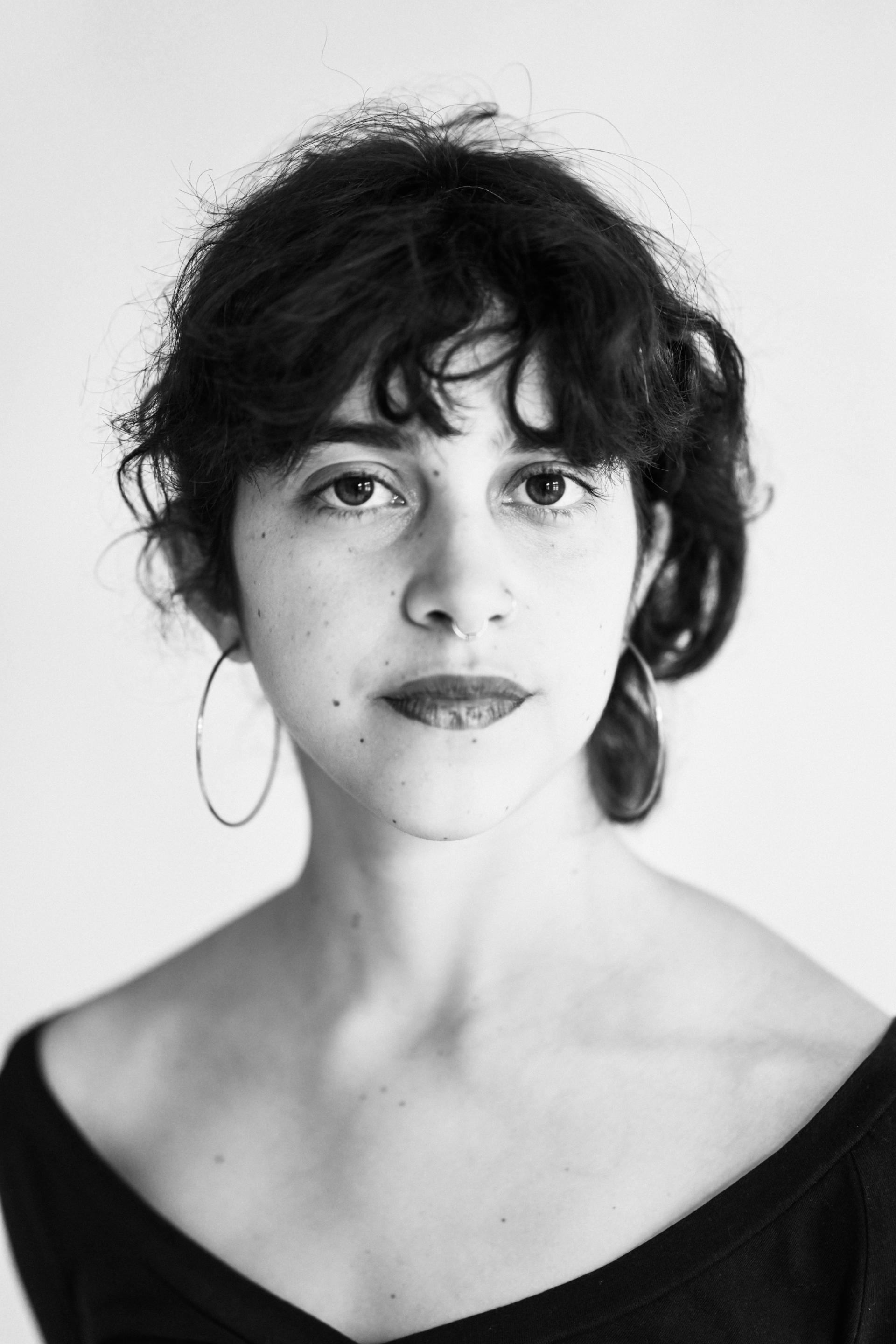
Ale Borea: »Sound recycling: (aesth)ethics of sampling« (participatory talk followed by a collective listening exercise)
This workshop is based on recent personal research into a phenomenology of sampling practices. The main aim will be to critically analyze and discuss the possibilities of sound recycling through the practice of sampling, and to question this parallelism (sampling = recycling = sustainability) in order to further explore its aesthetic and ethical implications in creative practices. The three thematic axes will be 1) the phenomenology of marginal sonority and recording processes, 2) the exploration of the potential of sound to create possible sound worlds, inspired by the proposal of Salomé Voegelin and Kwodo Eshun, and 3) an approach to sampling that open doors for a so called “entelechy” of sampling, this is, an exercise of vitalist post-anthropocentrism by sonic imagination that unfold sound fragments. This discussion will allow us to rethink and re-signify the concepts of (re)source, (an)archiving and anarchy, postmemory, and sonic ecologies.
Ale Borea is a Peruvian percussionist and sound artist based in Berlin. She holds a master's degree in Philosophy, focusing on the phenomenology of listening. She writes about music for various publications and performs with independent music groups in Berlin. Since launching her solo project in 2020, she has released three EPs using sound archive samples (mainly telecommunication noises) as carriers of affective resonance and collective memory. Her driving force is the aspiration to explore possible sonic deployments of these samples by expanding their inherent material vitality into dreamlike soundscapes.
Further Reading:
- Bennett, Jane, Vibrant Matter: A Political Ecology of Things. North Carolina: Duke University Press, 2009.
- Eshun, Kodwo, More Brilliant Than The Sun. Adventures in Sonic Fiction. Quartet Books: London, 1998.
- Liechti, Hannes, This Track Contains Politics: The Culture of Sampling in Experimental Electronica, Bern: Norient Books, 2022, (specially pp. 35 - 52).
- Westerkamp, Hildegard, “Linking Soundscape Composition and Acoustic Ecology”, in: Organized Sound, An International Journal of Music and Technology, Volume 7, Number 1, 2002, Cambridge University Press. Available online: https://hildegardwesterkamp.ca/writings/writings-by/?post_id=15&title=linking-soundscape-composition-and-acoustic-ecology
- Voegelin, Salome, Sonic Possible Worlds. Hearing the Continuum of Sound, Bloomsbury Academic, 2014.
#SamplingPractices #SoundRecycling #SonicEcologies #PostAnthropocentrism
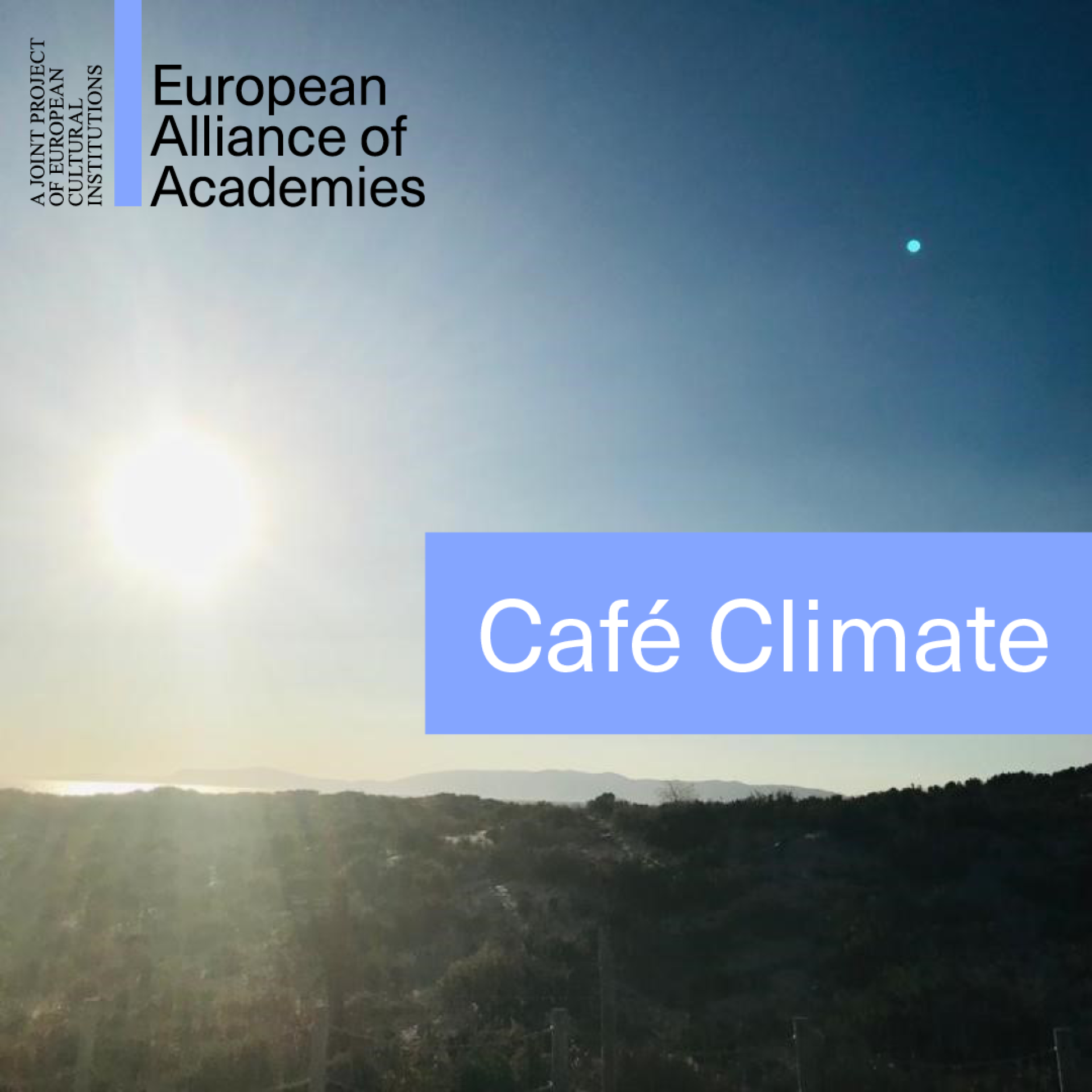
Café Climate | European Alliance of Academies
We are all aware that global warming is progressing and could result in a temperature increase of up to four degrees Celsius if immediate action isn't taken. How can we, as individuals and as members of communities, contribute to the necessary transformation? How can our societies and ecosystems adapt to climate change? How can we work to preserve our shared environment, including the already threatened temperate climate?
Café Climate provides an inviting space for discussion. In a relaxed, café-like setting, participants can gather to engage in conversations about pressing issues and potential solutions. While the ecological crisis is often framed in economic terms, we offer a different perspective—one that is concrete, cultural, and broadly political. Conversations are held in German and English.
During the next Café Climate at Time to Listen, you can meet and discuss issues of climate (in)justice with members of the European Alliance of Academies, Iris ter Schiphorst (composer), Cécile Wajsbrot (writer), and artists Jovana Popić and Petja Ivanova, as well as invited experts like Bernhard König (composer, writer), Alexandra Nehmer (architectural researcher), Dr. Carla J. Maier (cultural researcher with a focus on sound and listening) and Eckhard Roelcke (journalist and member of the activist group Letzte Generation).
Café Climate is an initiative by the European Alliance of Academies that was founded in 2020 by 70 art academies and cultural institutions from across Europe to stand up for the freedom of art. www.allianceofacademies.eu
Banu Çiçek Tülü: »Inundated: Speculations on Water as a Site and a Paradigm« (lecture performance)
»Inundated: Speculations on Water as a Site and a Paradigm« is a performance in which the artist Banu Çiçek Tülü sonically transmits research about water, dam construction, environmental justice from South East Turkey. Water as a paradigm with which one could articulate the cohabitations and inclusions of sites and bodies. While water is fluid, it can be easily stopped, manipulated, or blocked. Manipulating the water, the decision makers appear to be instrumentalizing it. Similarly, if an artwork is situated within and around temporal and spatial bodies, is it then possible to think of that manipulation of bodies that are not there as a means of representation?
Dr. Banu Çiçek Tülü (Adana/Turkey) is a music producer, sound artist, DJ and researcher with a background in design theory, based in Berlin, Germany and Adana, Turkey. She develops her ideas and research by using sound as a primary medium and queer sonic methodologies. Her practice-based artistic approach involves participation, social design, ecology, radical feminist and queer theory which uses artistic, cultural and political imagination as tools for social change. She has a monthly show “Sonic Journey '' at Refuge Worldwide Radio Berlin. She is currently lecturer in Sound Studies and Sonic Acts Master program Berlin University of the Arts.
#Water #EnvironmentalJustice #DamConstruction #ArtAndRepresentation
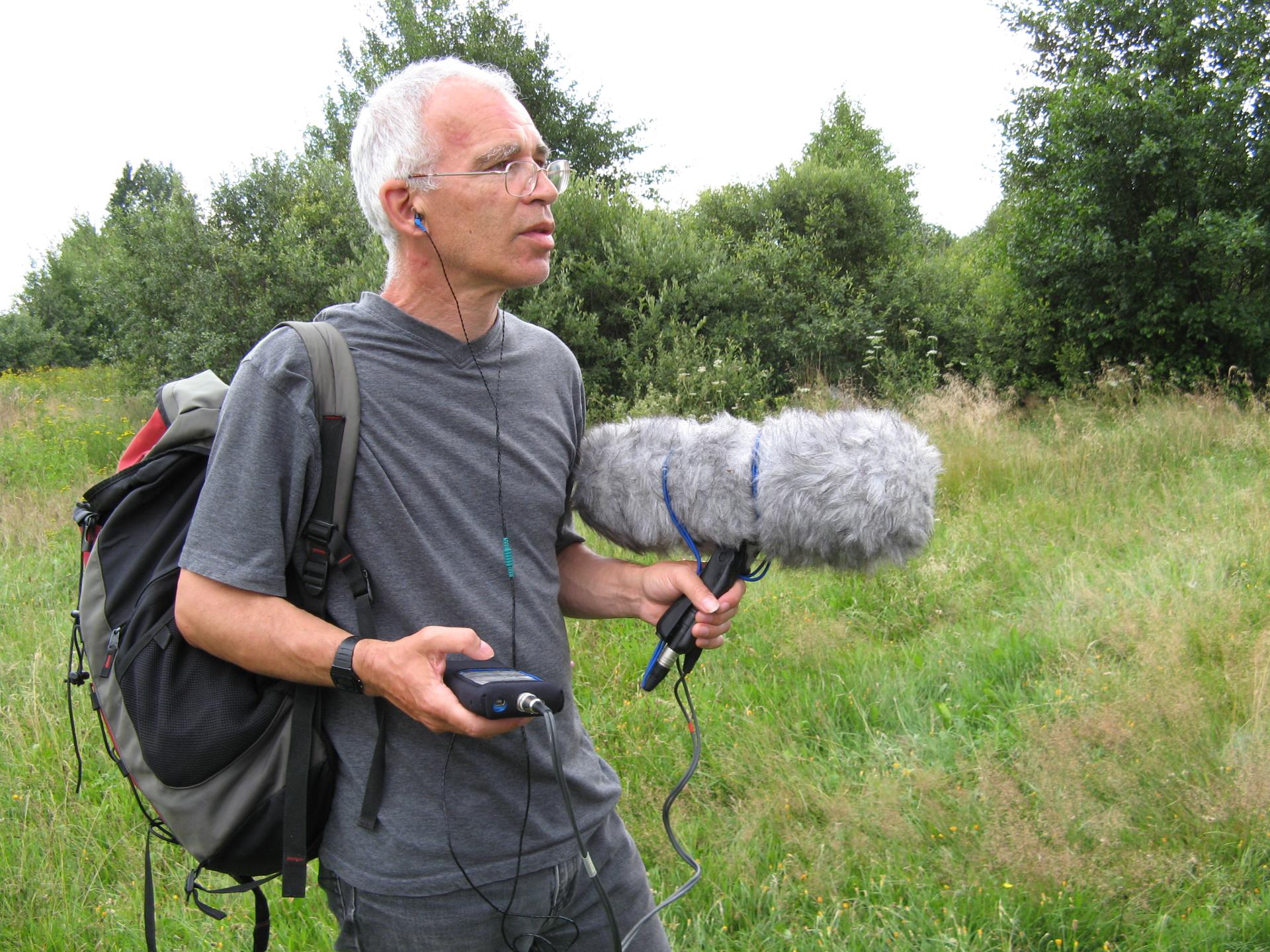
Peter Cusack: »Listening to Climate Change and Making Music Through the Window« (listening introduction)
In Berlin we experience the climate crisis through weather, effects on wildlife and worries about city water supply. But it can also be heard through subtle changes in the soundscape. Since 2012, Peter Cusack has recorded sounds from his apartment window overlooking a small Hinterhof, in order to document what happens. Inspired to make an active response, Cusack has also been exploring ways of making music – on guitar and with field recordings – that regards the sound environment as an equal participant. This session will discuss such observations and practices using recordings and images as illustrations.
Peter Cusack is a field recordist and musician with a long interest in our acoustic environment. He initiated the “Favourite Sounds Project” to discover what people find positive about everyday soundscapes and ‘Sounds from Dangerous Places’ using sonic journalism to investigate places of major environmental damage like the Chernobyl exclusion zone. He plays improvised music on guitar and field recordings, is a member of CRiSAP (UAL London), and was a guest of the DAAD Berlin Künstlerprogramm 2011. Most recently he has become involved with radio.earth, audio streaming, soundwalking and ‘open air’ music making.
#Listening #Soundscape #FieldRecordings
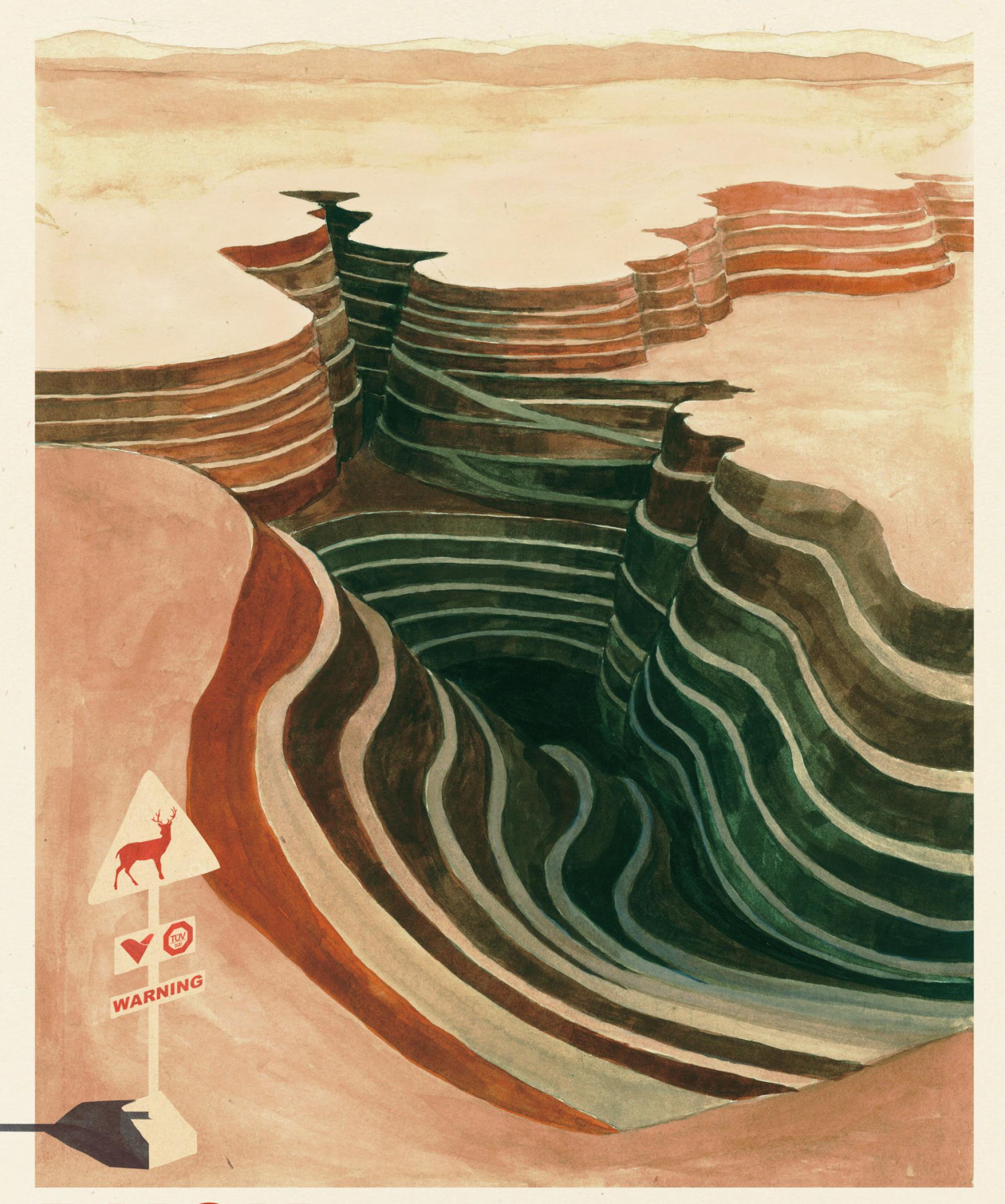
Marina Cyrino / Matthias Koole / Angélica Freitas: »Passing the buck, or how to get away with ecocide« (performance excerpts and discussion)
The session consists of a performance and a group discussion on the intertwining of Germany and Brazil in the production of environmental disasters, more specifically the crime of Brumadinho, where the tailings dam of the mining company VALE, certified by TÜV SÜD, burst in 2019 and was responsible for 272 human deaths. The discussion will be organised around two topics: aesthetic/ethical choices made when sharing and telling the stories of people living with disasters; strategies for artists and institutions to put pressure on corporations and public institutions to bring justice to ecocides.
Angelica Freitas is a poet, performer and translator from Brazil. In her work, she explores themes of gender, women, language and the literary canon. Her books have been translated into German, English, French and Spanish. »Um útero é do tamanho de um punho« (»The Uterus is the size as a Fist«), with which she was nominated for the Portugal Telecom Prize in 2013 and won the APCA Prize in Brazil, has been published in Germany, Brazil, Argentina, Chile, Mexico, Spain and Portugal. She was a fellow of the DAAD's Berlin Artists-in-Residence Programme in 2020-2021 and has lived in Berlin ever since.
Marina Cyrino is a Brazilian flutist, sound artist and researcher based in Berlin, active in the fields of improvisation, composition and performative audio-visual installations. Her flute playing is shaped by techniques developed through the use of internal amplification. She is a member of the Brazilian experimental music label Seminal Records. She holds a PhD in Music Performance and Interpretation from the University of Gothenburg.
Matthias Koole is a guitarist. He plays written and improvised contemporary/experimental music in different groups and as a soloist, as well as making music (live or not) in multidisciplinary projects. He is a member of the Brazilian experimental music label/production house Seminal Records. Matthias was awarded a Stipendienpreis at the Internationale Ferienkurse für Neue Musik in Darmstadt (2010) and was resident at Akademie Schloss Solitude, Stuttgart (2013-2015). He studied guitar in Ghent, Belgium, with Tom Pauwels and defended his PhD at Universidade Federal de Minas Gerais, Brazil. Currently he lives in Berlin where he focuses on his activities as an improviser in different groups as well as solo. As a solo artist, he has been concentrating on the use of acoustic steel string guitar combined with no-input mixing and has been planning a new project on performative field recordings.
Further Reading:
- Dossier in German on the Brumadinho crime, with links to various articles and sources: https://www.labournet.de/internationales/brasilien/lebensbedingungen-brasilien/brumadinho-ngo-anzeige-gegen-tuev-sued-wegen-toedlichem-dammbruch-in-brasilien-ergaenzt-aktionskampagne-und-untersuchungskommission/
- Video report on the relation of TÜV SÜD with the crime of Brumadinho: https://www.youtube.com/watch?v=UWDQ3S1FGeY
- Buck-Passing Project Teaser: https://youtu.be/WT5Q8IEmpuo
#CrimeOfBrumadinho #Ecocide #EU-Accountability #ArtisticStrategies
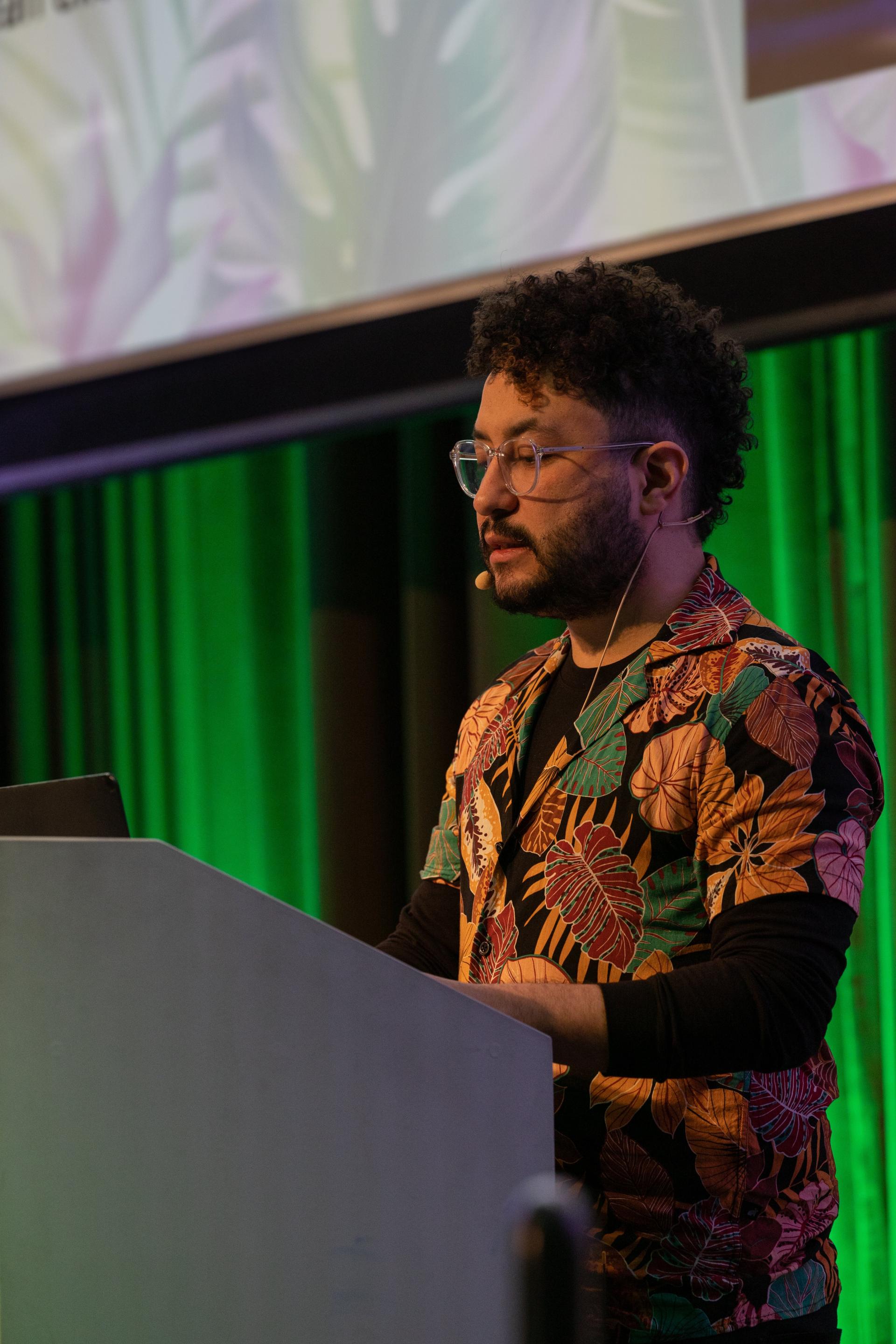
Nico Daleman: »Cancelling Noise« (listening session and discussion)
Cancelling Noise puts into perspective the cultural differences of the concept of noise, while also questioning the noise reduction algorithms’ inherent biases. Daleman’s research understands noise as a constitutive part of our sonic environments and our political Zeitgeist. In a world of hyper-mediation and overconsumption, challenging the listening practices encouraged by tech corporations recontextualizes (sonic) climate (in)justice by bringing awareness to our social relationship with noise. Who gets to decided what is noise pollution? Who has the privilege of access to silence?
Nico Daleman (Bogotá 1989) is a Colombian-born sound artist and researcher based in Berlin. With a background in audio engineering and musicology, his research explores the influence of music technology on current practices of contemporary music and sound art, focusing on cybernetics, neuroscience, artificial intelligence, and non-western musical traditions. He is a member of the sound art collective Errant Sound and hosts the show »The Rest is Music« on Cashmere Radio.
Further Reading
- Metz, Cade. “There Is a Racial Divide in Speech-Recognition Systems, Researchers Say” New York Times, March 23, 2020.
- https://www.nytimes.com/2020/03/23/technology/speech-recognition-bias-apple-amazon-google.html
- Tallon, Tina. 2019. “A Century of ‘Shrill’: How Bias in Technology has Hurt Women’s Voices,” The New Yorker, September 3, 2019. https://www.newyorker.com/culture/cultural-comment/a-century-of-shrill-how-bias-in-technology-has-hurt-womens-voices?reload=true.
#NoiseReduction #Algorithmicjustice #Noisepolution #Silence
Attention: Please bring your own smartphone and headphones to participate. Some headphones will be provided by AdK.
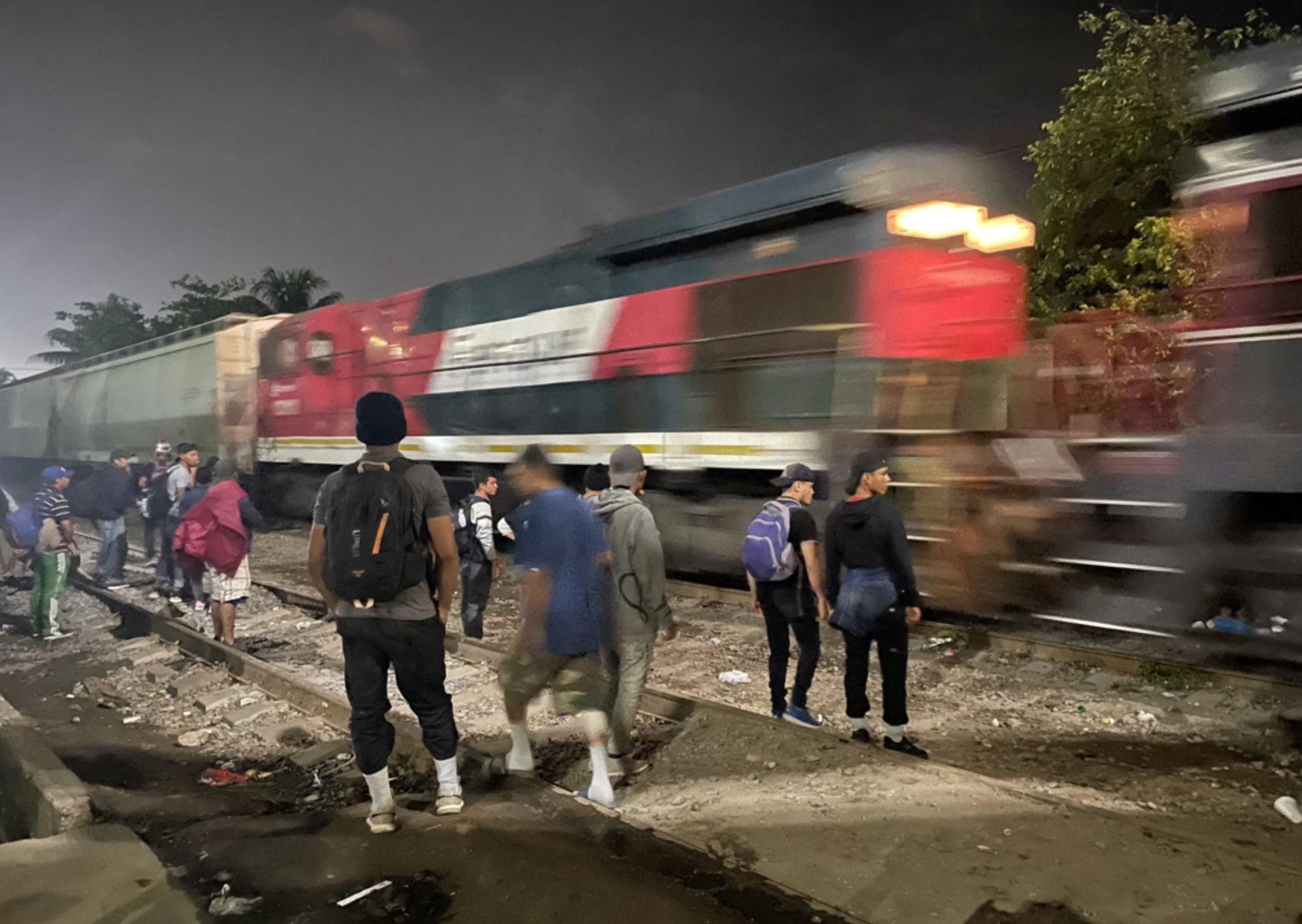
Álvaro G. Díaz Rodríguez: »The soundscape in the migratory path of The Beast in Mexico« (sound installation and presentation)
In recent years, migration and transit across the borders from south to north in Mexico have increased exponentially. During the year 2023, over 500,000 events of irregular migration were recorded in Mexico, surpassing any previous year's figures. People from Haiti, Honduras, Guatemala, Venezuela, and Nicaragua, primarily, leave their countries due to violence, extreme poverty, and unemployment, with the hope of reaching the northern border and crossing into the United States to finally »live the American dream.«
One of the transportation methods used by hundreds of migrants to travel over 5,000 kilometres is »La Bestia« (The Beast), a series of freight train routes that connect both borders from south to north. »La Bestia« stops in various towns, creating a sonic and visual space known to few but cited by many. There, migrant voices gather like fleeting ghosts, leaving a mark at each of these points. This work explores the political, social, and ecological dynamics that unfold throughout the journey, emphasizing how sound can highlight the injustices within these relationships. The session presents sound material from the various points along the route of »La Bestia«, including the voices of its people, the soundscapes of each region, and the audiovisual environments of the main migrant centres, serving as a testimony of the ever-changing reality along the journey.
Álvaro G. Díaz-Rodríguez is a musicologist, field recorder, and sound artist, currently serving as a full-time research professor at the Autonomous University of Baja California (UABC), Mexico. Their research and works focus on sound studies, interdisciplinary art, migration and sound, and soundscapes supported by technology. They hold a Ph.D. in Musicology from the Argentine Catholic University. They have received various awards and scholarships, including the Sound of the Year Award 2021, Ecos Sonoros 2021 Award by the Ministry of Culture (Government of Mexico), selection in the Triennial of Latin American Art in New York 2022, and Special Mention at Le Concours international 60 Secondes Radio 2021 (Canada). They are a member of the National System of Researchers of CONACYT and the National System of Art Creators 2023-2025 by the Secretary of Culture of the Government of Mexico. Their works have been presented in numerous countries, including Mexico, the USA, Holland, France, Spain, Belgium, Austria, England, the Netherlands, Italy, China, Portugal, Switzerland, Canada, Cuba, and Argentina. They have also published extensively in specialized magazines and book chapters on contemporary art, music, and aesthetics. Their recordings of the sounds of the Gray Whale are featured in the exhibition "Grey Whale; Marine Migrants" at the Tijuana Cultural Center, and their sounds accompany the augmented reality in the 500 pesos bills issued by Banco de México. As a sound artist, they have focused on linking the soundscape with the social contexts of its inhabitants and creating a portrait of society through sound.
#Migration #SoundStudies #Borders #SocialJustice #SoundArt
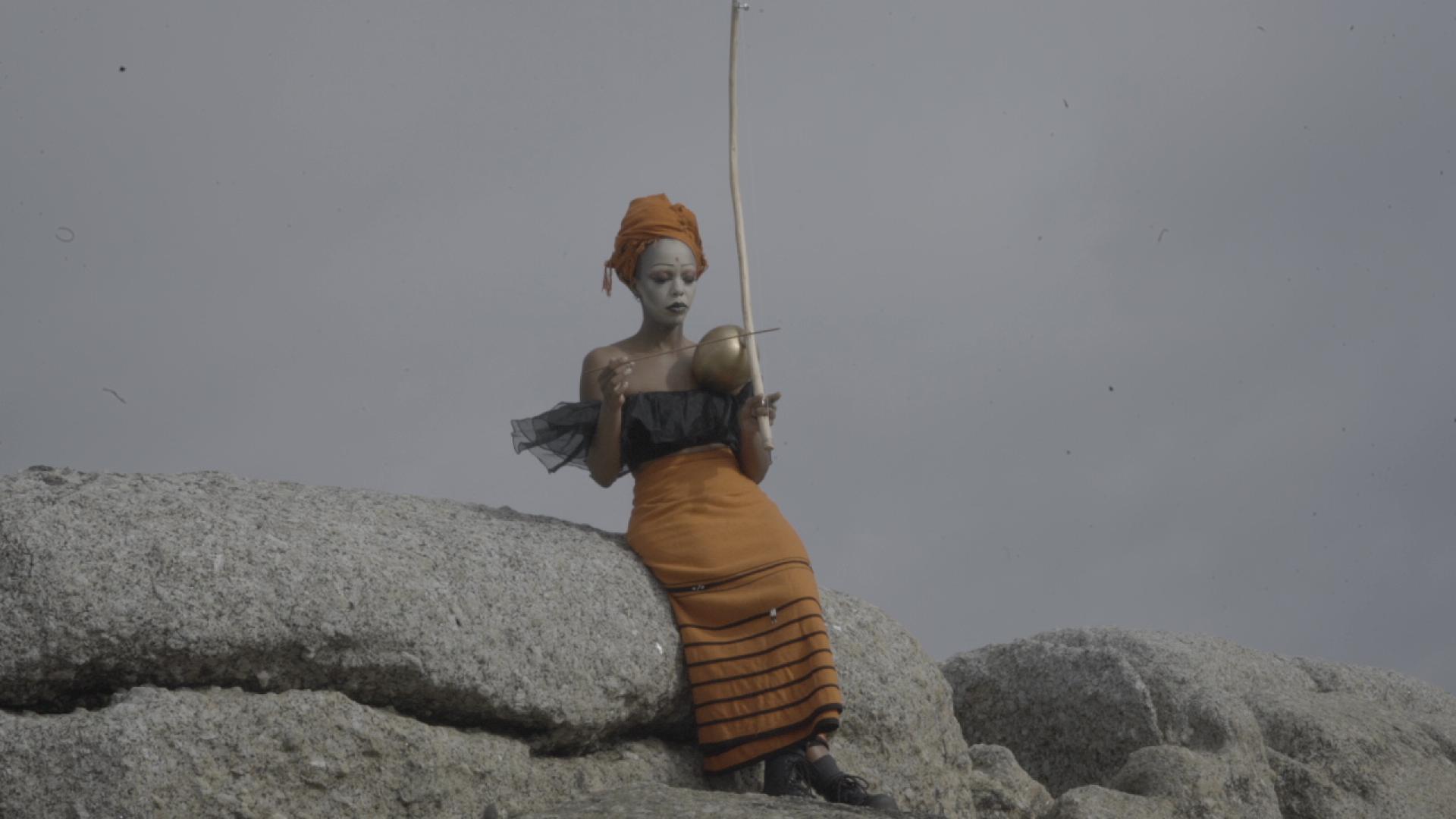
Gugulethu Duma: »water ~ wading ~ voice« (listening session)
In her Sounds from a Listening Body work Gugulethu Duma, explores the meaning of having and being a voice as a vocalist and sonic researcher. By redefining our understanding of oceans through voice, body, and origin, SLB delves into acoustemology, oceanic humanities, and cultural memory. Partnering with the South African Institute for Aquatic Biodiversity, Dumama engages with how underwater recordings can help characterize coastal landscapes. Together they challenge apartheid’s legacy, reclaim aquatic spiritual practices, and use sound to foster ecological and social justice.
Gugulethu Duma (aka Dumama) is a multifaceted musician, composer, sonic poet, researcher, curator and creative producer from the Eastern Cape Province of South Africa. Her work deconstructs and critiques archaic modes of representation in Southern African/African sonic and performance culture while composing music for herself and others. Her work has been showcased at numerous cultural institutions and festivals, including SAVVY Contemporary, Gropius Bau, Humboldt Forum, Boiler Room x Total Refreshment Center, Zeits Mocaa, Oyoun Kultur NeuDenken, Berlin Xjazz, Berghain Kantine, Chimurenga, and KONJO, across South Africa, Senegal, Berlin, and the USA. As an emerging curator and cultural organizer, Duma focuses on workshops and performances centered around Embodied Social Justice.
#Voice #Ocean #Ancestry #Listening #Collaboration
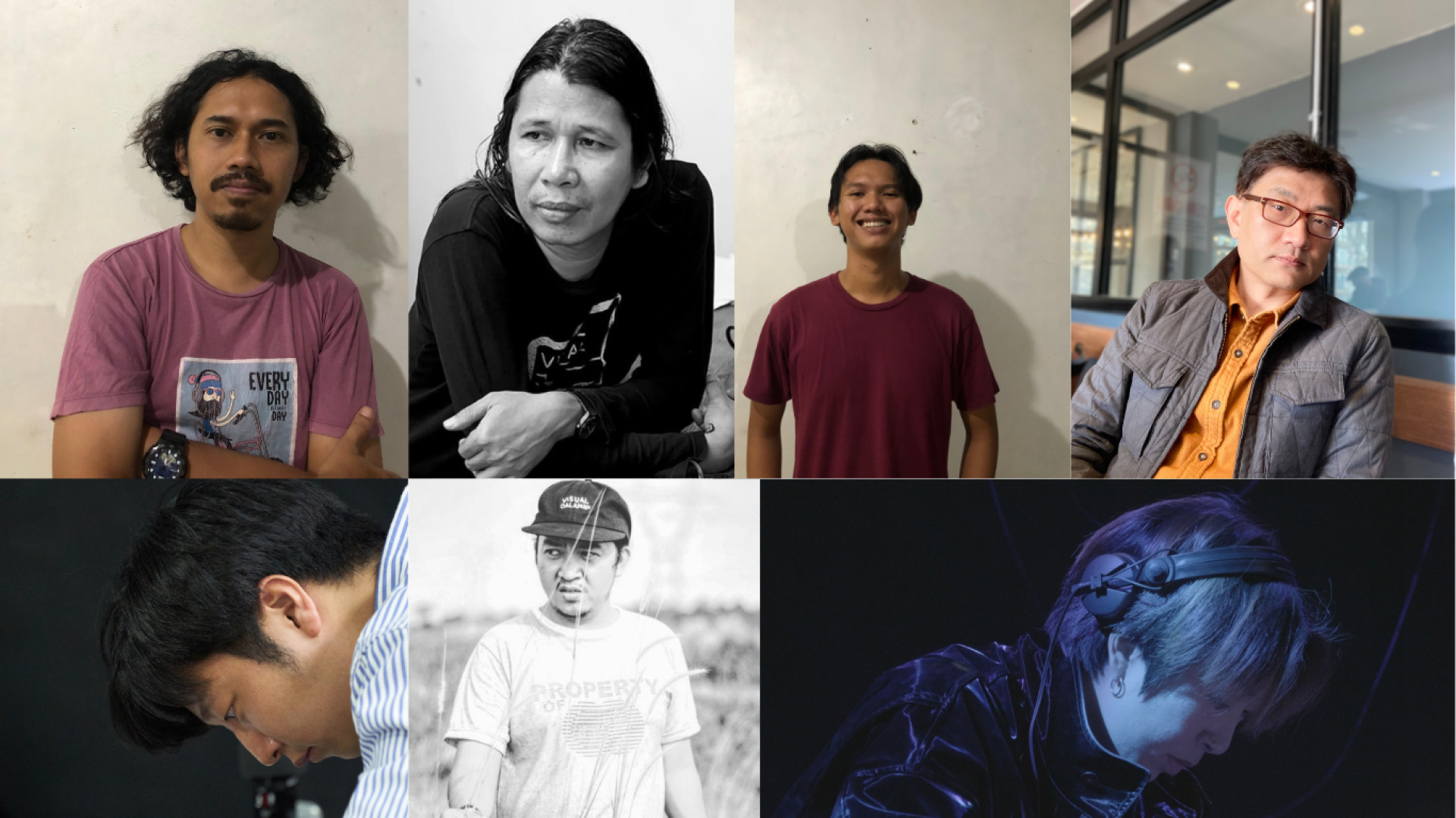
Futures of Listening: »Curating Water Knowledge« (listening session and discussion)
Futures of Listening: Curating Water Knowledge is a work-in-progress sound studies/art report on water and local water knowledge in two target communities in Indonesia: Kalibata Pulo in Jakarta and Rangsot in North Lombok. The premise of our project is that listening to water and local water knowledge of the past and the present, and imagining how such listening will change in the near future due to climate change will offer new perspectives on examining climate-related issues, and specifically, climate (in)justice.
TRANSIENTS: a sound artist collective in South Korea
- Suk-Jun KIM: a South Korean composer, sound artist and researcher/professor at the University of Aberdeen, Scotland, UK. In 2023, he initiated a large-scale sound studies and sound art project Futures of Listening by collaborating with the National Asian Culture Center (ACC) in South Korea and has led its Sound Lab Team as senior researcher between May and December 2023. Between 2024-25, He is the Principal Investigator for Futures of Listening: Water Knowledge from Two Cities, an ISPF ODA challenge-oriented research project funded by the British Academy.
- Jiyoung YOON: Jiyoung is a Korean electronic music composer and sound artist renowned for her innovative approach that spans various genres and styles of contemporary music. Her work is distinguished by its unique sound design and the incorporation of cutting-edge technology, traversing the realms of electronic music live performance, sound installation, and film music. Yoon’s distinctive musical style and creativity provide fresh inspiration to many, particularly the younger generation. Jiyuoung was a researcher at ACC Sound Lab in 2023.
- Yeabon JO: Yeabon’s work focuses on studying shapes of sound and giving a possibility of approaches with various fields. Typically, there are direction space works through computer, multi-channel speakers, and also with video arts. He studied composition and electro-acoustic music at Chugye University for the Arts, and worked as a researcher at the National Asia Culture Center (ACC)’ Sound Lab.
SIGISORA: a sound artist collective and a platform in Jakarta, Indonesia, specialising in framing acoustic ecology issues through art.
- Wahyu BUDIMAN DASTA (Walay): Walay is an artist, director, archival researcher and art handler who currently lives and works in Jakarta. One of the members of Forum Lenteng, he is responsible for the Space Manager and Production Division and is also part of the archiving team. He is also involved as a main participant for the MILISIFILEM Collective initiated by the same organization.
- Van Luber PARENSEN: Luber is an artist who lives in Jakarta. Having studied at the Milisifilem Collective in Forum Lenteng, he works widely across mediums, including music, painting, drawing, sketch, collage and film. He isserving at Sigisora, a platform that specializes in framing acoustic ecology issues through art.
- Helmi YUSRON: Helmi is a student of Islamic History and Civilization at the Syarif Hidayatullah State Islamic University, Jakarta. In 2023, he studied at the Milisifilem Collective, one of the programs run by Forum Lenteng, and now focusing on the Sigisora platform, a platform about works of art through the medium of sound initiated by Forum Lenteng.
FORUM LENTENG: an egalitarian non-profit organization in Jakarta, Indonesia, which focuses on alternative education and cultural activism, especially in the fields of film, art and media.
- Hafiz RANCAJALE: Hafiz graduated Fine Arts at Jakarta Institute of Arts (IKJ) in 1994. He is an artist, curator, founder of Forum Lenteng, and Editor in Chief at www.jurnalfootage.net. He is also the Artistic Director of OK. Video – Jakarta International Video Festival (2003-2011). Since 2013, Hafiz is the Artistic Director of ARKIPEL.
#WaterKnowledge #EmbodiedListening #SoundImage #CuratingKnowledge
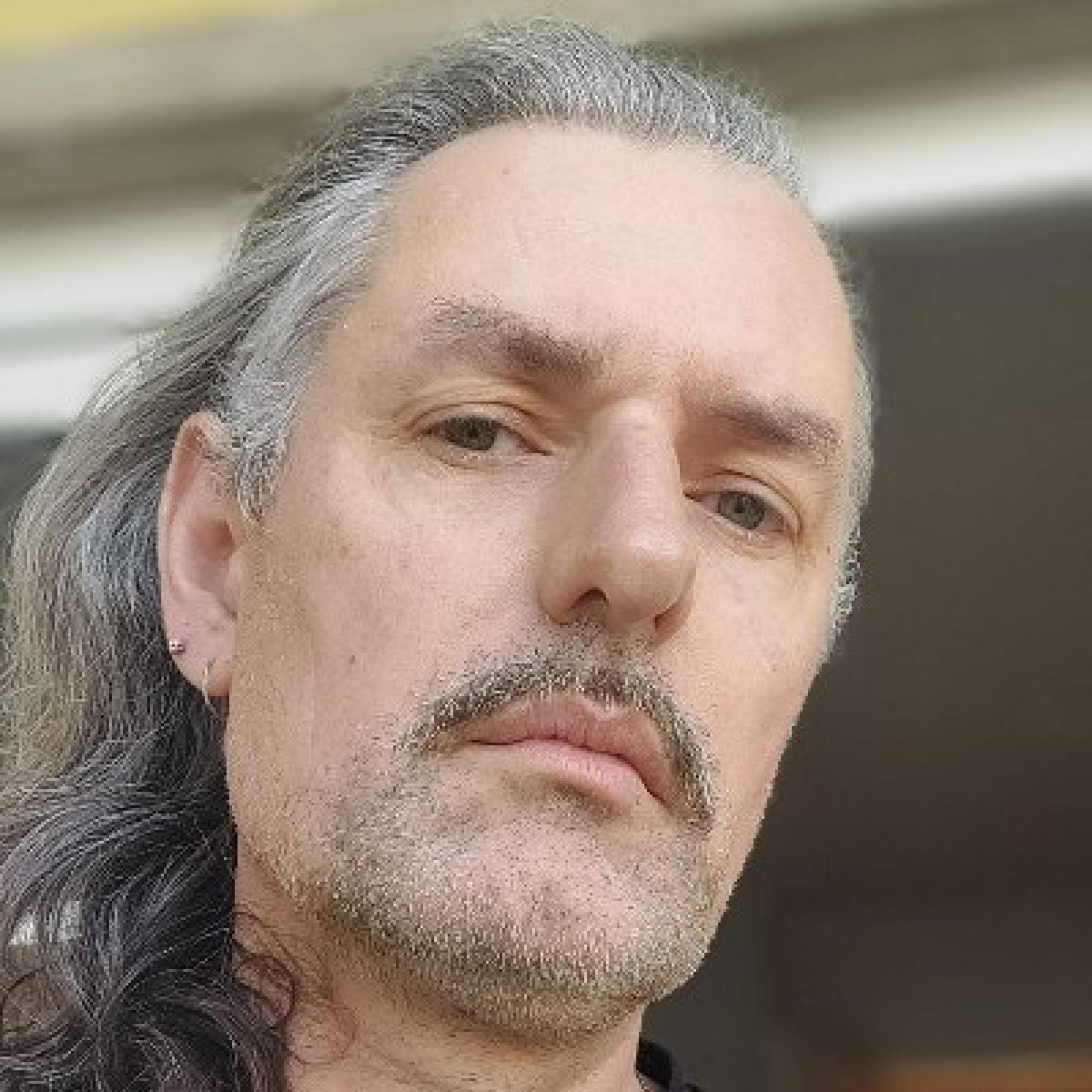
Nathan Gray: »Listening to Indigenous cultures and extractive industries in Australia’s Northwest.« (listening session and discussion)
Two contrasting projects make audible the varying relationships of resistance and extraction in the Pilbara region of Australia – the centre of Australia’s ongoing mining boom. This session presents extracts of these works and talks through Indigenous curator Margot Neale’s concept of »the third archive« an archive that combines Western written and technological artifacts with Indigenous knowledge keeping practices and the artist’s own concept of »mutual aid as research methodology« employed in community collaborations. Australia’s Pilbara region is the unceded territory of 31 indigenous groups whose rights to their land have been denied since colonisation and whose various dealings with governments and mining companies have created an uneven terrain of exploitation. In 2019 the Yindjibarndi people became the first indigenous people in the world to gain back the right to their land over an existing mine, but under Australian law this right does not include the ability to veto mining in their sacred land.
In 2022 non-Indigenous Australian artist Nathan Gray began an ongoing collaboration with Juluwarlu Aboriginal Corporation – the indigenous lead cultural archive of the Yindjibarndi people – as sound artist in residence. Using mutual aid as a research methodology he volunteered his audio skills to further community cultural and political goals and in the process learn about the region and its people. These projects also function in contemporary art and radio contexts. One of the many results of this ongoing collaboration was The Marlaangu Project, 2023 (Juluwarlu Aboriginal Corporation and Nathan Gray) a project which collected contemporary indigenous ghost stories, presenting them in the endangered Yindjibarndi language as a way to promote language skills to young people. Yindjibarndi, like many indigenous languages, holds important ecological knowledge, often stored as songlines, linked systems of knowledge, law, song and location that form a mnemonic system of memory for oral cultures similar to a Western paper or digital archive. Preserving language is an integral part of preserving this knowledge. Presented in contrast The Train From Jukaan Gorge, 2024, (Nathan Gray) is assembled from field recordings of the automated, kilometre-long trains that move tons of iron ore every day from the Brockman mine site that encompasses Jukaan Gorge. The specific audio characteristics of these trains and their recordings from the vantage point of the corrugated iron pipes that run under and alongside the trains creates a unique and unsettling atmosphere, a horror soundtrack for economies of extraction. In May 2020 the mining company Rio Tinto dynamited the Jukaan Gorge caves, sacred sites of the Puutu Kunti Kurrama and Pinikura peoples in The Pilbara, an archaeological site showing evidence of continuous human habitation going back 46,000 years. A parliamentary inquiry found that the destruction was done legally and put into law new measures for protection of Aboriginal sacred sites. However, under pressure from pastoralists and miners these new laws were repealed after only five months. The works presented were made on the unceded lands of the Yindjibarndi people, and make reference to the Puutu Kunti Kurrama and Pinikura peoples and lands. We pay our respects to their elders past and present.
Nathan Gray is a non-Indigenous West Australian sound artist living in Berlin. He works with language across a range of long-term research projects that explore the history and the applications of linguistics, the limits of language and the complexities of sound, affect and the voice. Gray’s ongoing collaborations with Juluwarlu Aboriginal Corporation, an Indigenous-lead, language and cultural archive in northern Australia creates cultural resources that exist both as contemporary artworks and community resources with the guidance of Indigenous elders. Solo performances have included a history of linguistic experiments to teach language to chimpanzees and a comparison of the relative speeds of animal experience which attempt to make technical concepts as tactile, audible and easily intelligible. The works use humour, sound production and effects to tell surprising and difficult true stories. Gray’s working-class background and philosophy of mutual aid as research sees him work in ways that blur his role as an artist. He works as a volunteer curator, archivist and sound recordist with various community radio projects and audio archives including Cashmere radio, Berlin; Ngaarda Media in North-Western Australia and Juluwarlu’s cultural archive among others. Gray’s regular radio show »The Weirding Module«, listens in to spoken word and the voice in contemporary art and experimental music, it approaches radio and the DJ set as form of research that creates the basis for his performances, exhibitions and further radio commissions. Recent exhibitions have included MHKA, Antwerp, The Art Gallery of Western Australia, and The Autostrada Biennale Kosovo. He was the recipient of a 2024 Berlin Senat Recherechestipendium for Bildende Kunst.
#IndigenousLanguages #Australia #Mining #Sound #Archives #Resistance #Extraction
Elsa M'Bala: »Ass Niang Collection« (sound booth)
The Project Ass Niang Collection came about in Senegal during research at the University of Cheick Anta Diop in Dakar. M`bala was introduced to a local collectionneur. Mister Ass Niang who has been gathering cassettes of African music for the last 50 years, has herited most of the cassettes from his father. From Congolese rumba, Ghanaian High Life, Senegalese Ballack, Cameroonian Makossa to Arab music as well as comedy specials. The variety of sounds is vast and reflects a sonic treasure depicting African storytelling since the 1960s. Niang has agreed to donate his entire collection of over 5000 cassettes to the artist Elsa M`bala, with whom they are planning other artistic prolongations in the near future.
Elsa M'bala was born in Yaoundé, the capitol of Cameroon. Her family moved to South-West Germany, where M'bala visited an international school and learned to express herself in various languages. In 2009 M'bala co-created the Pan-African feminist poetry duo »Rising Thoughts«. From 2012 to 2016 she moves back to Cameroon where she developed a new artistic language, between visual and sonic explorations. Her current work uses voices and online samples in the form of transcoding, code switching and algorithms patterns, building a fine print of electronic griotage reaching from the past into the future. Mixing analogue and digital sound machines as well as electronic and acoustic instruments to experiment with speeches, rituals and poetry. Elsa M’bala work Addis’63 is a sound performance that explore the complexities and dualities of life, always torn between the aim to balance the inner with the outer world, the spiritual quest for identity. Using the total submergence of electronic sound and the rhythmical properties of Ekang/Bikutsi rhythms of the Beti people of central Africa to help us reconnect with the mythological, the spiritual and the imaginary. As the philosopher Mudibe said, Africa is an invention, for that matter Africans have to (re-)invent themselves. Elsa M'bala performed her writings and music at various events throughout Europe and the African continent. From Centre d'art contemporain de Bretigny, Bandjoun Station (CMR), Engagement global (DE), Aperture Magazine (USA), Contemporary And (C&); (DE), New Art Exchange Nottingham (E), Institut für Auslandsbeziehungen (ifa);(DE), Goethe Institut Kamerun, Centre Culturel Francais du Cameroun, Alte Oper Frankfurt, KW Berlin, heroines of sound festival Berlin, Augmented reality festival Darmstadt. She is one of the incubators Winners for Berlin Community Radio 2017 and had a regular radio show on the platform before it closed in 2019. She is currently in a residency at Ker Thiossane in Dakar, Senegal.
#Cassetes #Collection #AfricanMusic #AfricanStorytelling
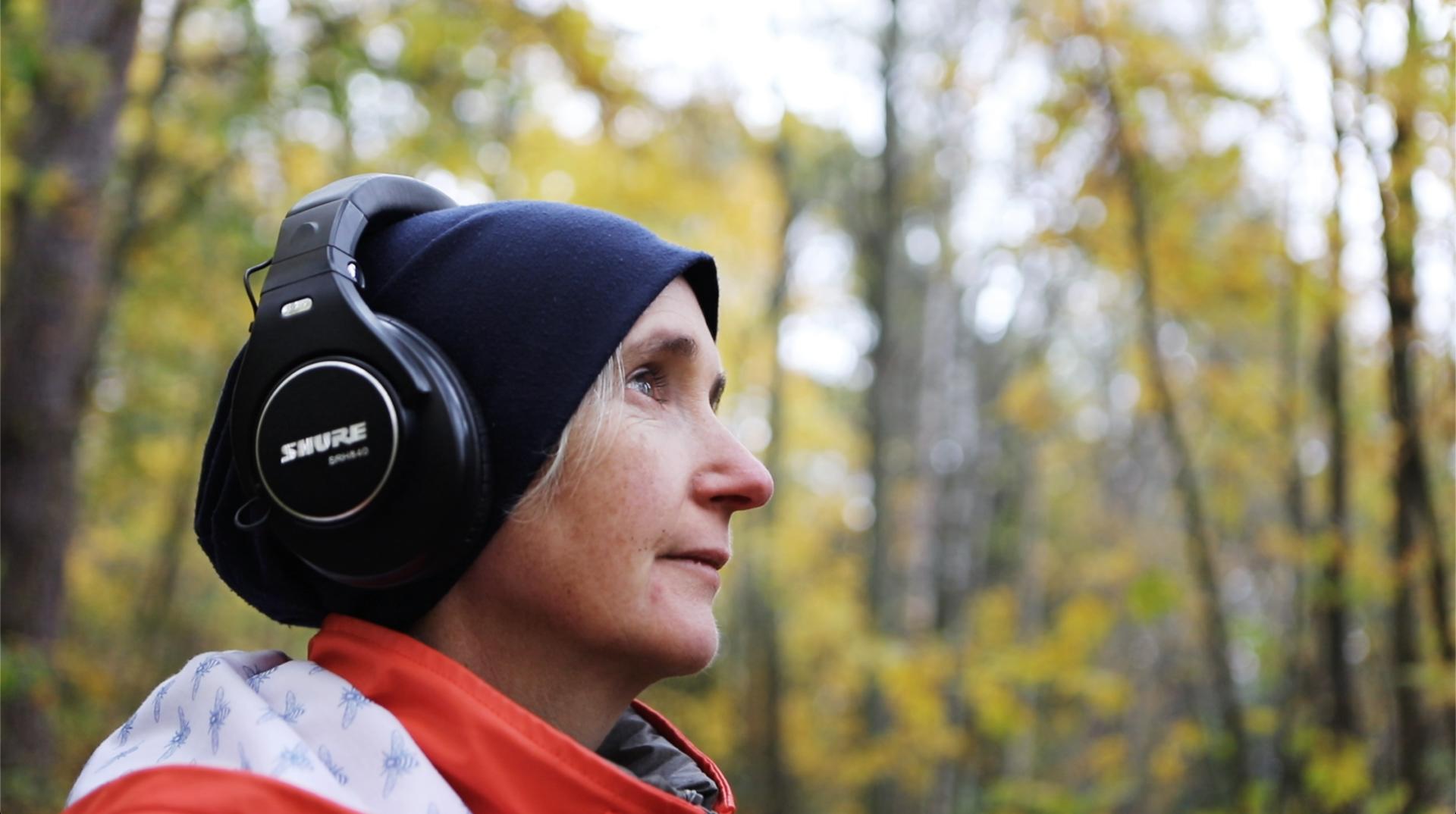
Karen Power: »arctic Ice speaks through time« (sound booth and presentation)
For two weeks in August 2024, Karen Power returned to the Arctic waters to listen once again to the sounds above, inside and below the glacial ice. This is a collection of some of her unedited field recordings captured during this extraordinary expedition, which she has placed alongside similar recordings made some 11 years earlier. She first listened to Arctic ice back in 2013 and has been keen to return to hear its changes, with an underlying question of the audibility of climate change. This is not intended to be a direct comparison, as the 2013 recordings were made 1 month later, in Sept., when the last of the light was waning and there is naturally less melting, but more simply an account of what she heard and captured some 11 years apart. The sounds are lusciously alive, which reinforces the complexities of our climate emergency. Just listen.
Dr. Karen Power is an Irish composer/sound artist, based in Cork, Ireland. Her creative output is diverse – from orchestral to installation works – and for the last decade has been focused on field recording as a means of bringing every day environments into artistic settings. Environments and how we hear every day sounds lies at the core of her practice, with a continued interest in blurring the distinction between what we consider ‘music’ and all other sound. For over a decade, she has listened and recorded in some of the worlds most isolated locations, such as The Arctic, Amazon, Living Namib Desert, Outback Australia and Antartica. Resulting field recordings are most often paired with musicians and involve new types of ‘aural scores + parts’, co-creative techniques and live collaborative exchanges, which are unique to each pairing + constructed to encourage a shared active listening environment. In 2012 she founded Natural Creators, an EY sound program that fosters an open, inclusive and diverse environment unique to every space.
#arcticexpedition #fieldrecordings #climatechange #soundart #listening
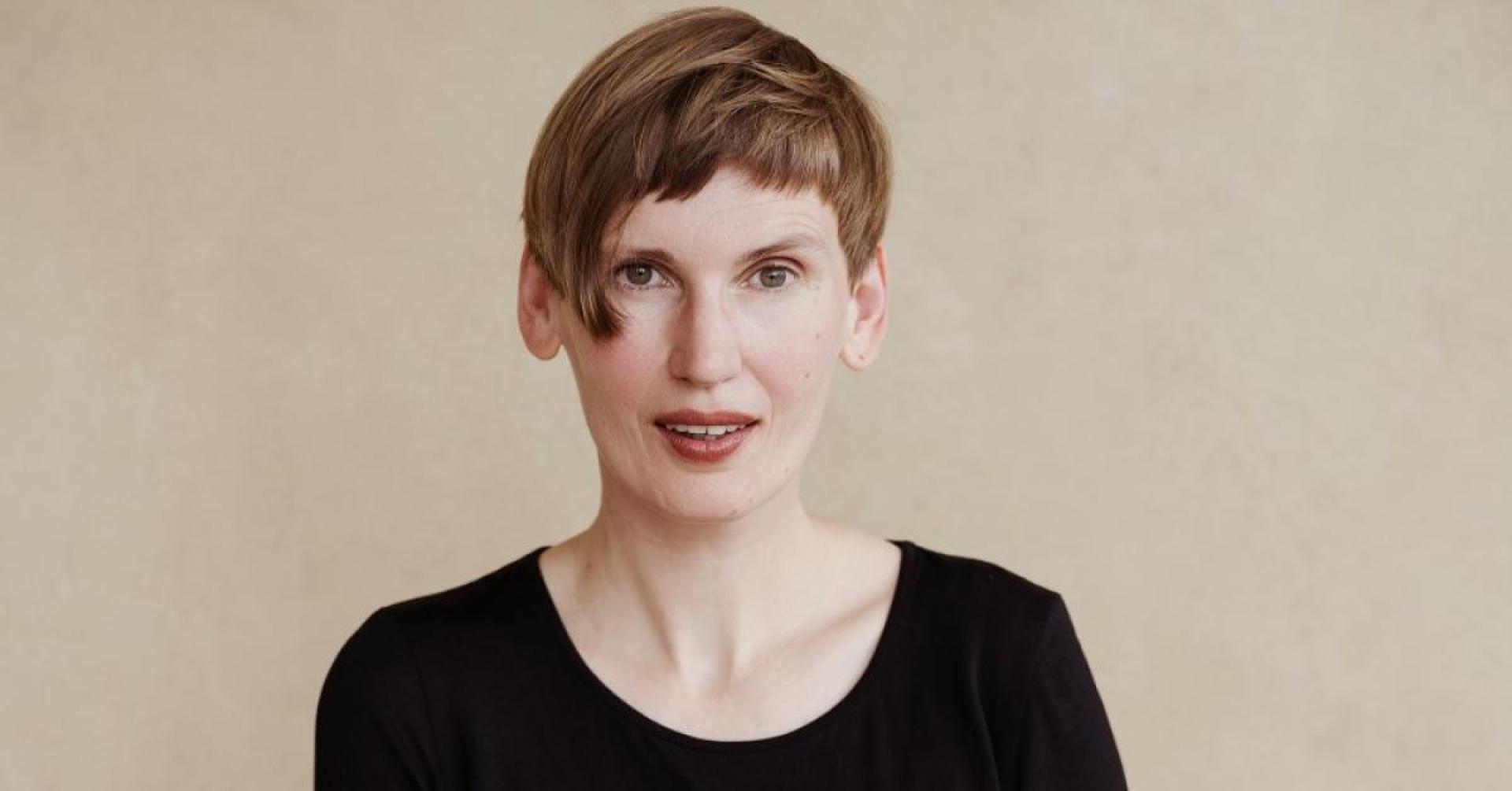
Eva von Redecker: »Bleibefreiheit« (keynote)
Eva von Redecker will give insights into her latest book »Bleibefreiheit« (»The Freedom to Stay«) is a long essay about life, death, and barn swallows. »Bleibefreiheit« pursues the idea of understanding our notion of freedom in a temporal way – as the enjoyment of fulfilled time.
Eva von Redecker, born in 1982, is a philosopher and non-fiction writer. From 2009 to 2019, she was a research associate at Humboldt University and worked as a visiting scholar at Cambridge University and the New School for Social Research in New York. In 2020/2021, she held a Marie-Skłodowska-Curie fellowship at the University of Verona, where she conducted research on the history of property. Eva von Redecker focuses on Critical Theory, feminism, and critiques of capitalism, contributing to publications such as Die ZEIT and frequently appearing in radio and TV interviews. Since the fall of 2022, she has hosted the philosophical talk series "Eva and the Apple" at Cologne Theater. Her most recent publications with S. Fischer include Revolution for Life: Philosophy of New Forms of Protest (2020) and a foreword to the anniversary edition of Dialectic of Enlightenment. Raised on an organic farm, she now lives in rural Brandenburg.
You can read a short summary of the book (in German) here. Please, register on the field notes account to access the abstract.
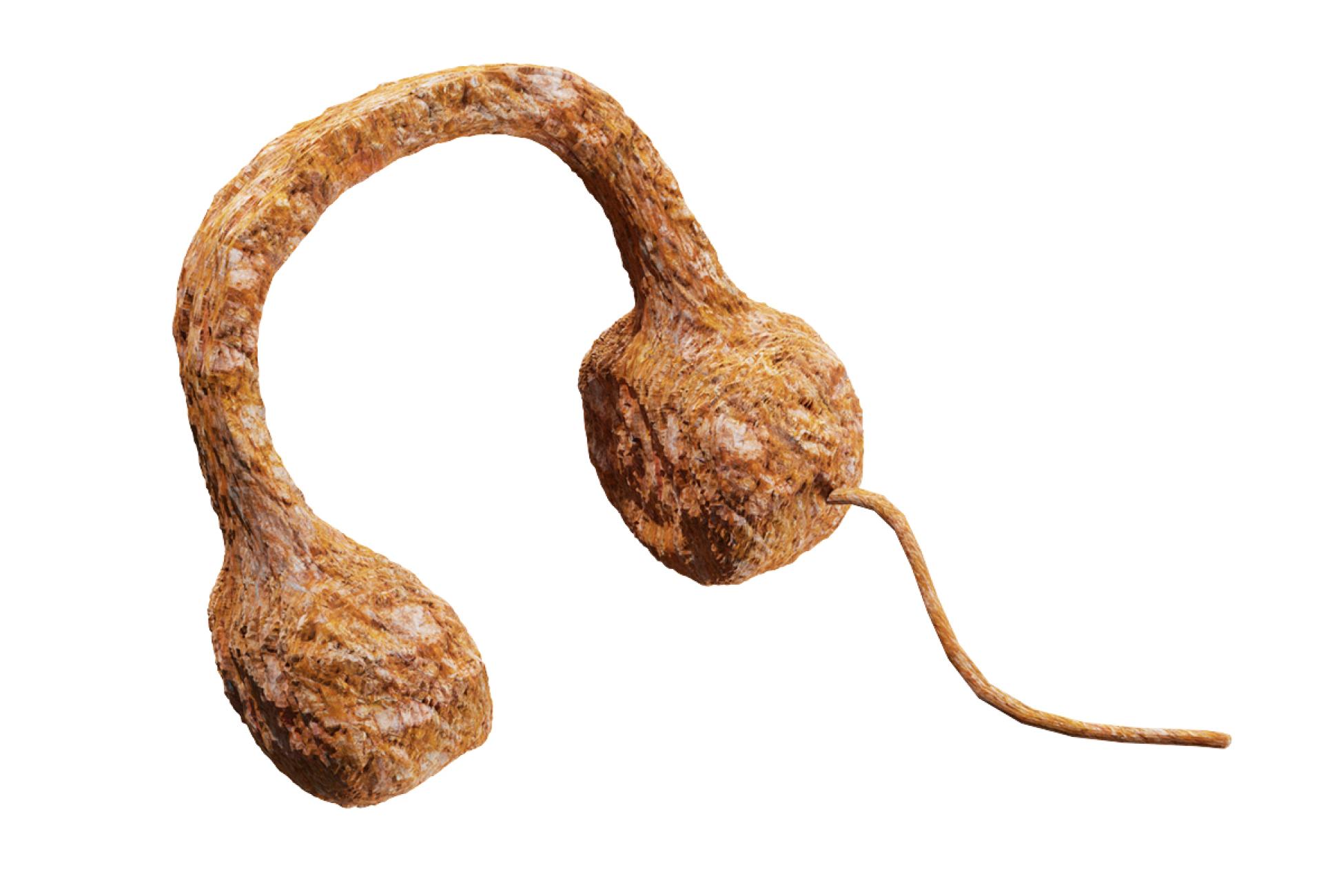
Kirsten Reese: »Climate justice learning and teaching« (introduction to the reader -forthcoming - and participative workshop)
This session reflects on teaching about climate justice, (bio-)diverse ecologies and the relation to sound, listening and aesthetic/artistic practises in the context of higher education, especially with people who are studying to become mediators into society - artists, social professionals, educators. The methodology of such climate justice seminars is very much intertwined with the content: learning from each other and sharing experiences, emotions and knowledge lies at the core of the seminars and workshops. Departing from a condensed presentation and some key points, and examples of projects that were developed within seminars, I want to share and discuss with the participants of the Time to Listen session the experiences and insights of teaching in the field in the last five years.
Kirsten Reese, composer and sound artist, creates works in relation to the acoustic biosphere and technosphere. As a researcher and educator, she focuses on diversity and specificity (technological, social, ecological) in the sonic arts, sonic ecologies and agency, sound perception, and translation and transformation processes.
#ClimateJustice #ClimateAndArtEducation #EcologyAndArtsInHigherEducation #ClimateLearningAndTeaching #SharingExperiencesInTeaching #ClimateAndEcology
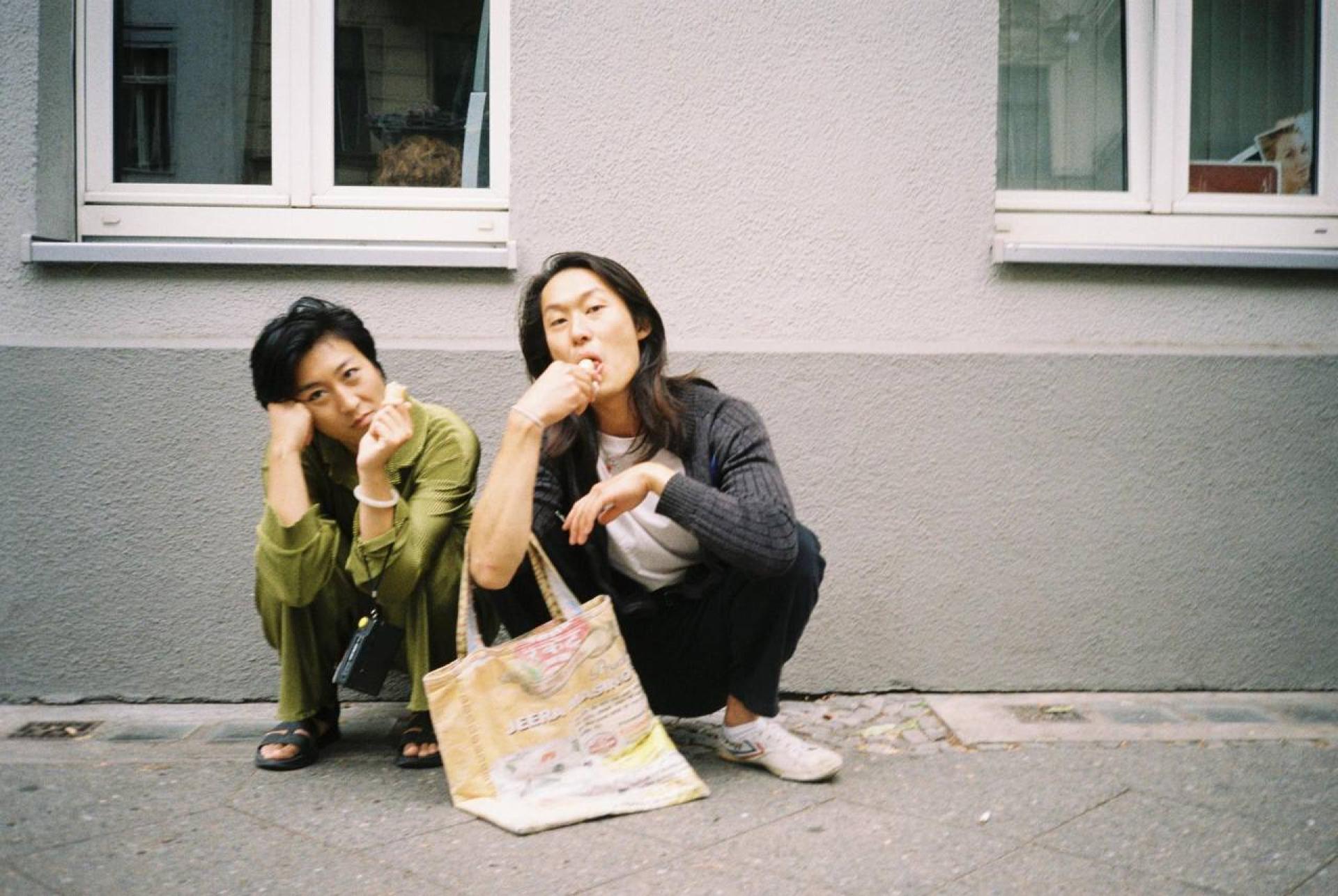
hany tea and Cavid Dhen: »rice as food as politics« (performance)
Amid the climate emergency and its impact on displacement and migration, hany tea and Cavid Dhen explore togetherness across borders and diasporas, addressing who bears responsibility for the crisis. With rice as both sustenance and a greenhouse gas contributor, they question responsible consumption. How can we trace the rice, and the desire for rice, and thereby reflect on questions of responsibility, inequality, and nostalgia? In a live electroacoustic performance with woodwinds, đàn bầu, and a rice cooker, they invite audiences to reflect on their own connections to food, migration, and environmental sustainability, fostering empathy and solidarity in the face of global challenges.
David Meng-Chuen Chen (Cavid Dhen) is an interdisciplinary researcher and performer. Cavid Dhen plays woodwinds, primarily saxophone but also clarinet and self-made instruments. Their musical practice, informed by their research, revolves around spontaneous discoveries, through process-based improvisation, extended performance techniques, and electroacoustic processing, while colluding with human and more-than-human collaborators. They are also a doctoral researcher at the Humboldt University, where they develop models of the land and food system, to assess scenarios of possible futures. Recent work on topics such as food systems transformation and degrowth have been published in prominent academic journals, including Nature Food.
hany tea is an interdisciplinary artist, activist and community organiser. Their research and artistic practice explore memory, diaspora, and the environment through sound, storytelling, and performance. During the COVID-19 pandemic, she researched sustainable approaches to the intricate dynamics of migration and displacement in the context of climate change, environmental degradation, and disasters. hany plays the đàn bầu, highlighting her commitment to archiving practices and reconnecting with her cultural heritage.
#SupplyChains #Rice #Food #Nostalgia #Migration
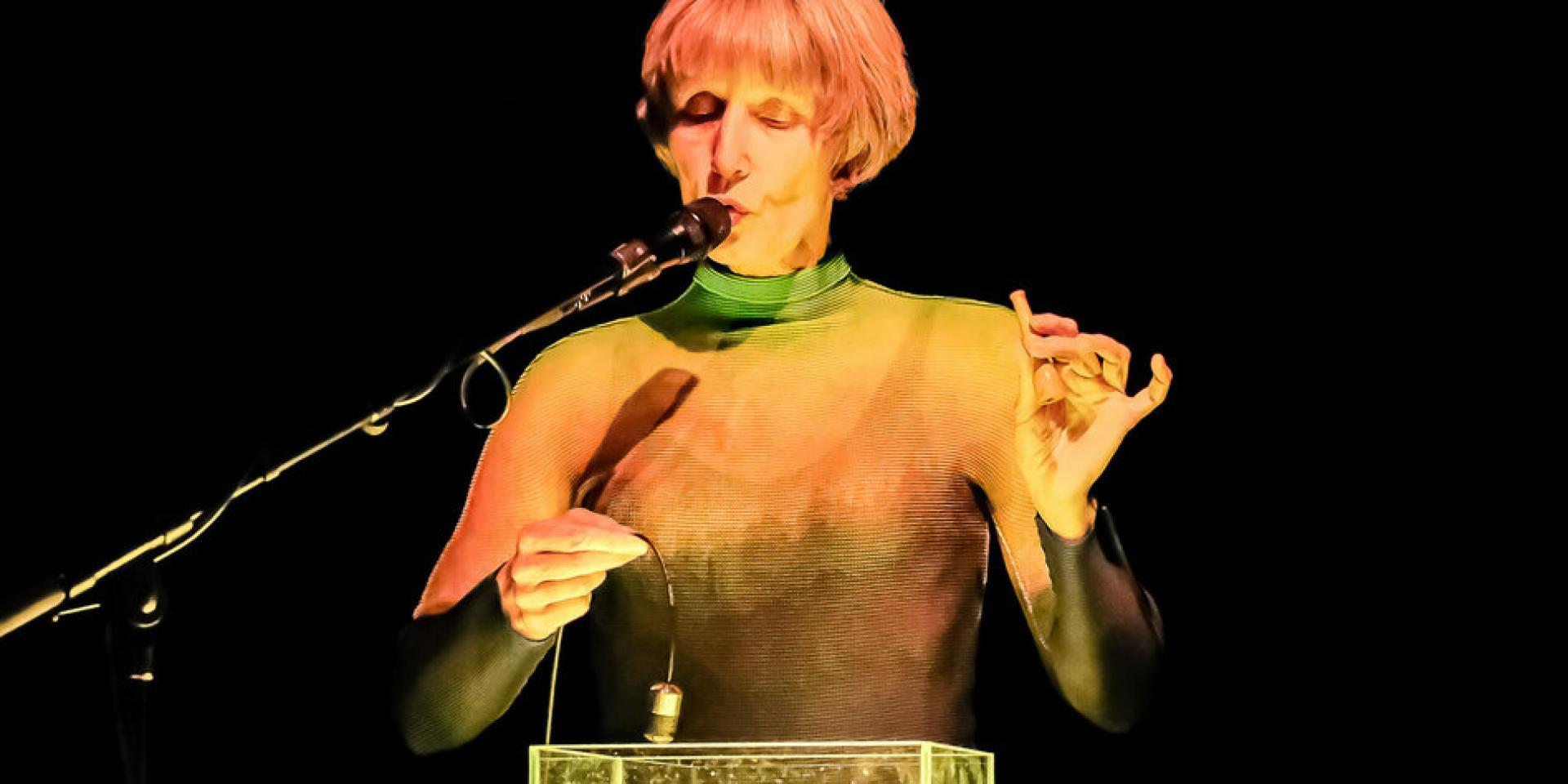
Ute Wassermann: »Sound Choir« (sonic session)
Multiple interconnections between our bodies and the world around us become possible by tuning into the sounds of the environment with our voices which is reflected in our daily life, in interspecies communication and in numerous oral music traditions. This short workshop includes a vocal warm-up with guided improvisation games through which we experience our voices as versatile sound instruments. In the course of the sonic session we will create various soundscapes as a spontaneous sound choir. The session will open with a short performance by Ute Wassermann for voice + bird whistles.
Ute Wassermann is one of the outstanding contemporary vocal phenomena. She combines composition, improvisation and performance art to create her own form of Gesamtkunst, in which environmentally relevant themes play an essential role. Her multidimensional voice, which she expands with bird whistles, objects and field recordings, oscillates between electronic, an/organic, animal and human qualities. In addition to international concert tours, she realizes compositions for soloists and ensembles.
Further reading:
- https://utewassermann.com/wp-content/uploads/2024/08/Wassermann-7.1.pdf
- The Singing Neanderthals (Steven Mithen)
#voice #WarmUp #OtherThanHuman #Environment #Choir
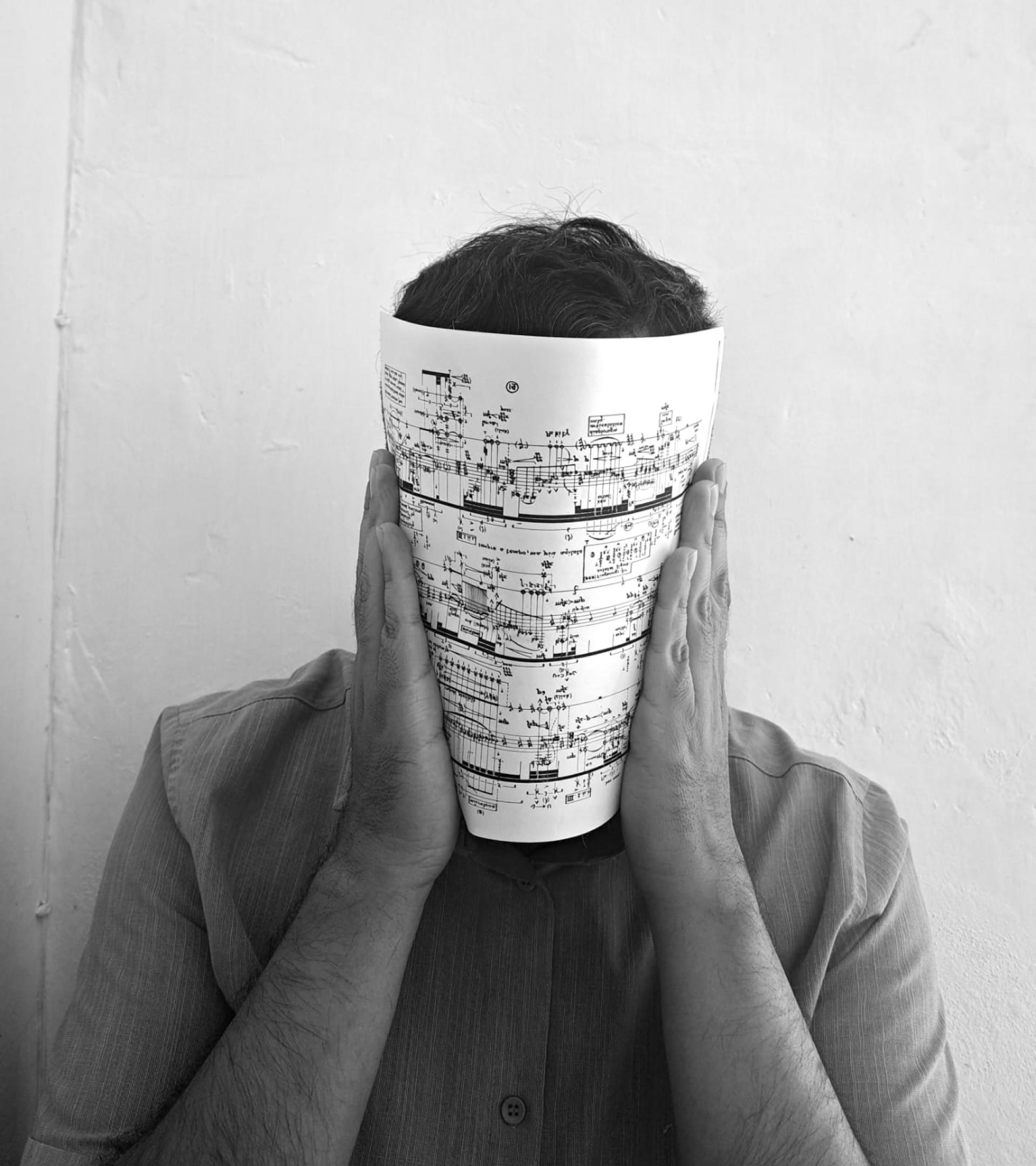
Jorge Zurita: »Emerging Nodes (flows from hydro-activism)« (participative workshop with video score)
Mexico faces global warming issues, particularly water-related ones due to extractivism, pollution, and neoliberal policies. The Colectivo Humedal, formed in 2020, fights against the privatization of wetlands in San Pedro Cholula, raising awareness and protecting natural resources. In 2023, the composer Jorge Zurita Díaz collaborated with the collective, creating wetlands that serve as both natural water filters and cleaners (bioremediation) and as musical instruments. The work shows how sound art can function as a mechanism against pollution, the deterioration of water and the creation of a community as a form of resistance.
At the Time to Listen symposium, he will present a video score documenting this work. It contains audio from the improvisation, testimonials from participants, as well as instructions for carrying out collective sound actions.
Jorge Zurita Díaz is a composer and sound artist interested in the intersections between music, digital art and audiovisual processes. His work moves between instrumental composition, sound art and ecopolitical topics. He completed his Bachelor's degree in Musical Composition under the tutelage of Manuel Rocha. Later he completed a Master's degree in Musical Technology with Dr. Hugo Solís as his main advisor. He has participated in residencies with composers such as Michael Pisaro, Nicolas Collins, Javier Torres Maldonado and workshops with Carola Bauckholt, Trevor Wishart among others.
Further reading
- Blackmore, Lisa (2022) Imaginando culturas hidrocomunes: investigaciones interdisciplinares y prácticas curatoriales entre ríos [Imagining Hydrcommons Cultures: Interdisciplinary Research and Curatorial Practices Between Rivers].Heterotopías, 5 (10). pp. 43-72.
- Gurk, Christoph (2024, July 5), Stadtentwicklung „Wir waren mal eine Kultur des Wassers“. Süddeutsche Zeitung. https://www.sueddeutsche.de/projekte/artikel/wissen/mexiko-stadt-wassermangel-duerre-schwimmende-gaerten-e748024/
#Water #NewInstruments #SoundArt #Composition #VideoScore #Collaboration
Attention: Please bring any object, any musical instrument or your own body to make any sound you can imagine.
1st and 2nd October 2024
Akademie der Künste, Hanseatenweg
Register here.↗
Open Session
Participants are invited to bring up ad hoc topics for discussion during the Open Sessions at the conference. This is an opportunity for attendees to explore ideas, questions, or projects they wish to discuss with others. Participants can introduce their proposed topics or questions during the introduction session on the first day at 10 a.m. Alternatively, they can add their sessions to the schedule later, provided there are still available slots.
An Open Session can take various forms: it might be an open discussion, a guided improvisation, a walk, or any other format the participant chooses. There are two dedicated time slots for Open Sessions, each lasting 45 minutes—one on the first day and another on the second day of the conference.
